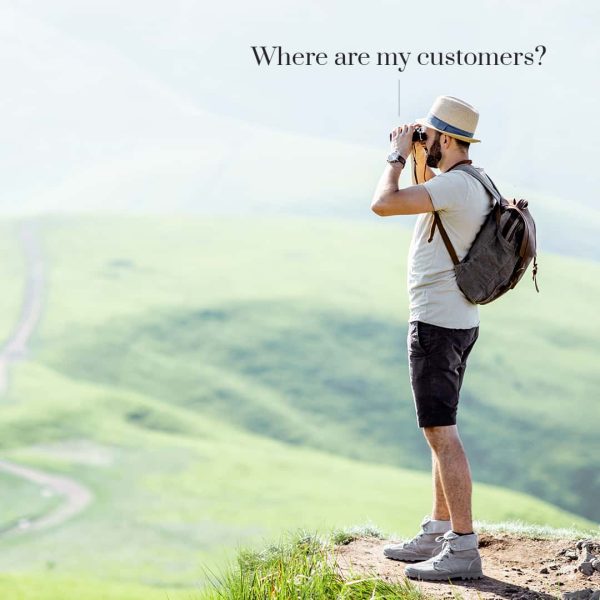Updated 21st July 2023
In 2023 every business needs to be a tech business. The internet has changed the way consumers interact with a brand for good. The market dictates new rules of availability.
People expect 24/7/365 service and you either offer it to them or get off the pot.
Your online presence is a double-edged sword. On one side, you’ll get more opportunities to get leads and sales, which is nice.
On the other, you’ll have to worry about a website, digital ads, social media presence, and everything else that goes with selling tours online.
Luckily, not every technology comes with an additional layer of chores to muscle through.
Case in point? Online booking systems!
What’s an online booking system?
Let’s imagine you were running a tour operator business 10 years ago. Your clients called the desk manager to book a trip. Then the manager made her notes, booked the flight, reserved the rooms, and so on and so forth. You probably had a minimum of three people and a ton of pen & paper involved in the process.
A booking system does the same thing, minus the hustle.
Your clients, after logging into your site, check for available tours, book them for preferred dates, pay, and proceed to mind their own business after but a handful of mouse clicks. Then the software automatically processes the payment and reserves the right tour for the right people all on its own.
Needless to say, booking systems streamline the process while cutting a few corners and saving you your hard-earned dollars along the way.
To sum things up, a booking system:
- allows the choice of date for booking
- allows the choice of time for booking
- lists additional services your clients can choose from
- processes payments
- includes a variety of additional features like analytics, mobile payments, 3rd party API integrations, etc.
In short, booking systems provide a bridge between your offers and the various ways you can sell them, such as your website, online travel agents and offline channels.
Booking system examples
There are many booking systems on the market. Most of them specialize in one industry to deliver superior quality rather than being a Jack-of-all-trades.
For example, Regiondo and FareHarbor specialize in the tours and activities sector. Hence, they provide niche features such as customizing your tickets, uploading barcodes and instantly integrate with tour sales channels like Viator and GetYourGuide.
Still, you have companies like Checkfront who serve a variety of industries in addition to tours and activities, such as rentals and accommodation providers.
TicketingHub is also another great platform to consider, and have even created a handy guide on How to Create a Top-Notch Booking Website.
These are just some examples of booking systems but there are hundreds of other providers to choose from.
Benefits of an online booking system
For starters, a booking system is a cost-effective solution compared to creating a custom system to accept payments online that updates your availability in real time. You can get started with online sales for as little as £40 a month, depending on the provider and level of service you choose. In contrast, developing your own solution can cost thousands upfront.
Maintenance costs are off the map as well as your booking software takes care of technical and security updates. So you’ll have one less headache to worry about.
Then there’s the payment processing aspect. Most booking solutions offer an instant service meaning you’ll have more money, faster.
Lastly, there is the analytics reports. You’ll get automatic reports about your sales and availabilities, letting you make better decisions and save hours every week.
Put simply, booking systems pack a wallop when it comes to cutting a few corners and saving much needed time and resources.
Disadvantages of an online booking system
While there are many positive aspects of implementing a booking system, there is also one major drawback.
A booking system is not as flexible as a custom-built solution. So if you need special functions that are not offered by anyone on the market, you might want to consider developing your own.
Still, providers like Regiondo give you the ability to customize almost every aspect, including how your tickets and online shop look like, integrating your colors, logo, and branding.
How do booking systems work?
Think of a booking system as a bridge between your business offers and the various sales channels and resources at your disposal.
The technology empowers you to manage your distribution from a single, centralized location using smart API integrations.
Additionally, a booking system can keep track of your employee availability and resources such as the number of bikes, boats, or segways you have in real time.
The system is added on top of your existing website, enabling you to accept payments online, manage your bookings calendar and connect your offers to various sales channels, among other functionality.
Is an online booking system right for you?
Here’s a simple checklist of questions to ask yourself before considering an investment in an online booking system:
- Can your customers check your availability without picking up the phone?
- Do you experience double bookings on a regular basis?
- Are all of your offers in check and is there a dedicated person responsible for swapping the cost of certain deals everywhere from the website to social media posts in case something changes?
- Is your flow of customers a constant or is your business slow on some days while not having the room to take a breath in others?
- Do you know what works and what doesn’t when it comes to customer acquisition?
A booking platform can and will help you with all of these issues.
That said, you’ll still need to pick the best tool for the job.
The trick is to know what you are looking for from a booking platform. Here’s how to decide:
- Consult with your team, ask them what they want or need to improve their routine.
- Create a list of features you are looking to see.
- Browse through different provider websites to get a better idea of what’s available.
This is how you can make a better decision. And if you need further guidance, you can check out this post on the 10 Things to Consider when Choosing an Online Booking System.
Need more free advice?
Chris and his team will send you a weekly email offering high-value insight and advice about a variety of marketing and business development topics related to the tourism industry. We address specific destinations, tours and activities, and the hotel industry. We also provide important travel industry news and updates.

